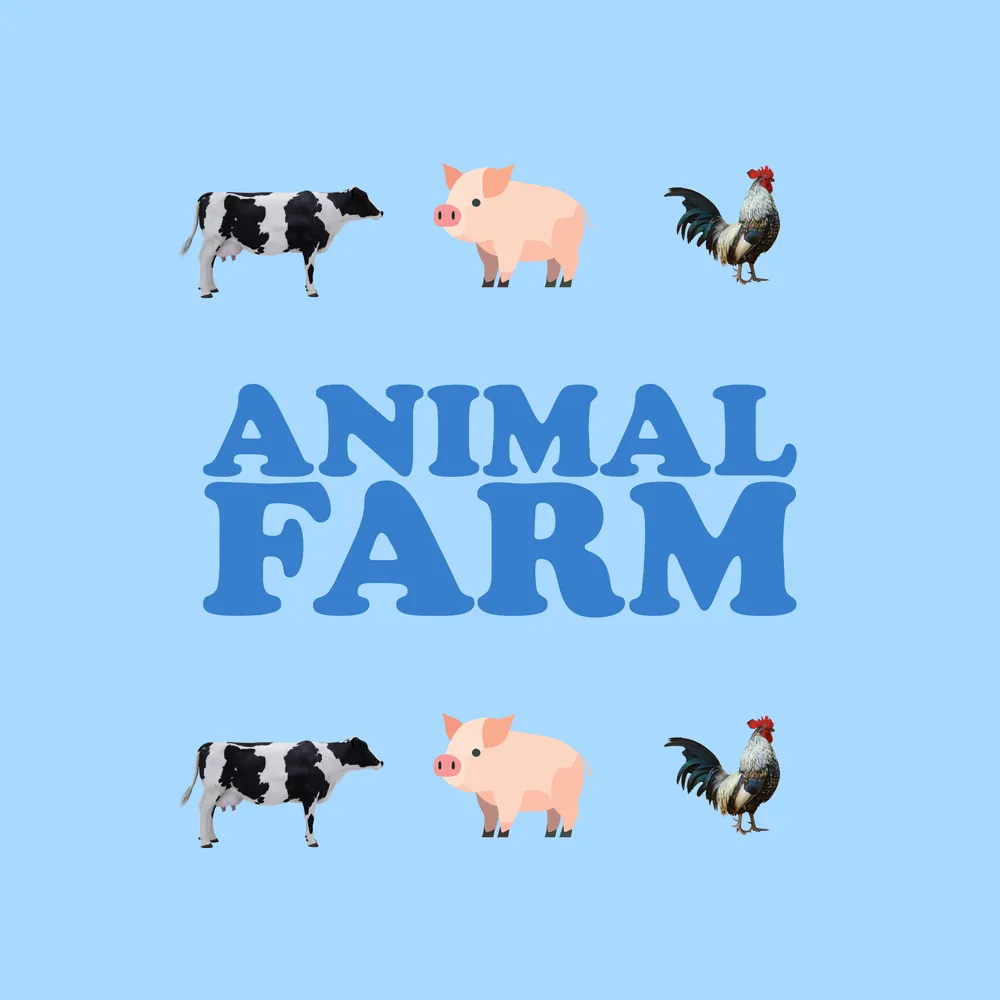Album Review: Animal Farm by JRNH

Album Review: Animal Farm by JRNH
Written By: Dan Eachus
The intersection of literature and music often brings a unique depth to musical projects, and JRNH’s Animal Farm is a remarkable example of this. Drawing direct inspiration from George Orwell’s timeless allegory, JRNH weaves a vivid narrative without uttering a single word. Featuring seven instrumental tracks—“Cow,” “Pig,” “Chicken,” “Sheep,” “Horse,” “Cat,” and “Dog”—this album is a nuanced blend of electronic and hip-hop elements that captures the essence of Orwell’s characters and themes in sound.
A Conceptual Undertone
From the first note, Animal Farm feels like an auditory counterpart to Orwell’s novel. Each track channels the characteristics and emotions of its titular animal, creating a series of musical portraits that echo the book’s commentary on societal structures, power dynamics, and rebellion. While the album is purely instrumental, the deliberate use of rhythm, texture, and melody forms a narrative arc that mirrors the rise and fall of the animal-led society in the novel.
Track-by-Track Breakdown
- Cow
The album begins with “Cow,” a track that opens with a slow, rhythmic bassline accompanied by soft, pastoral synth tones. The track’s mood is earthy and laborious, evoking the hardworking yet exploited nature of the cows on the farm. The beat feels steady, like the plodding pace of an animal pulling a plow, and subtle percussive elements mimic the mechanical rhythm of routine labor. - Pig
“Pig” shifts the tone dramatically. A commanding, almost pompous synth melody dominates the track, paired with booming 808s and sporadic hi-hats. This track captures the cunning and domineering nature of the pigs in Orwell’s story, who seize power and manipulate the other animals. The use of distorted electronic effects adds an edge of menace, hinting at the corruption that lies beneath the surface. - Chicken
The shortest track on the album, “Chicken” is characterized by jittery beats and sharp, staccato synth lines. The music feels nervous and frenetic, embodying the skittish and restless nature of chickens. JRNH’s use of glitchy, off-kilter rhythms here is particularly effective, offering a moment of levity amidst the heavier themes. - Sheep
“Sheep” is hypnotic and repetitive, with a droning synth line that loops over a steady, almost trance-like beat. The simplicity of the composition mirrors the blind obedience of the sheep in the novel. Layered vocal samples—distorted beyond recognition—add a haunting, choral effect, as if echoing the mindless chanting of Orwell’s sheep. - Horse
With “Horse,” JRNH crafts a tribute to Boxer, the novel’s embodiment of loyalty and sacrifice. The track is both powerful and tragic, with a driving rhythm that suggests strength and endurance, juxtaposed against melancholic melodies that hint at impending doom. The use of orchestral strings alongside electronic elements creates a sense of grandeur, as if honoring the nobility of the horse’s labor. - Cat
“Cat” is sly and unpredictable, blending jazzy chord progressions with subtle hip-hop beats. The track’s laid-back groove and meandering synth lines capture the aloof and opportunistic nature of the cat in the story. There’s a playful quality to the music, but it’s underpinned by a sense of detachment, as if the cat is always watching from the sidelines. - Dog
Closing the album is “Dog,” a track that balances loyalty and aggression. The percussion is sharp and militant, evoking the role of the dogs as enforcers of the pigs’ rule. Yet, beneath the surface, there’s a warmth to the melody, suggesting the dogs’ innate loyalty and desire to serve. The duality in the composition mirrors the dogs’ conflicted role in the novel.
Production and Aesthetic
The production on Animal Farm is impeccable. JRNH seamlessly blends electronic and hip-hop influences, creating a soundscape that is both modern and timeless. The use of sampling, modular synths, and complex drum programming lends the album a rich texture, while the minimalist approach ensures that each track remains focused and evocative. There’s an almost cinematic quality to the music, making it easy to visualize the scenes and characters from Orwell’s book.
A Sonic Allegory
What makes Animal Farm truly exceptional is its ability to convey Orwell’s themes without lyrics. Through music alone, JRNH explores the dynamics of power, exploitation, and rebellion, offering listeners a fresh perspective on a classic story. The album doesn’t merely retell the tale—it reimagines it, inviting listeners to experience the story through sound.
Conclusion
JRNH’s Animal Farm is a triumph of conceptual music. It’s an album that rewards close listening, with each track offering layers of meaning and emotion. Whether you’re a fan of Orwell’s novel, instrumental music, or simply looking for a thought-provoking listening experience, this album delivers on every front. By translating a literary masterpiece into a musical one, JRNH has created a work that is as engaging as it is innovative.
Animal Farm is more than just an album—it’s an exploration of the power of music to tell stories and evoke complex ideas. In a world where words often dominate, JRNH reminds us of the profound impact of sound.






